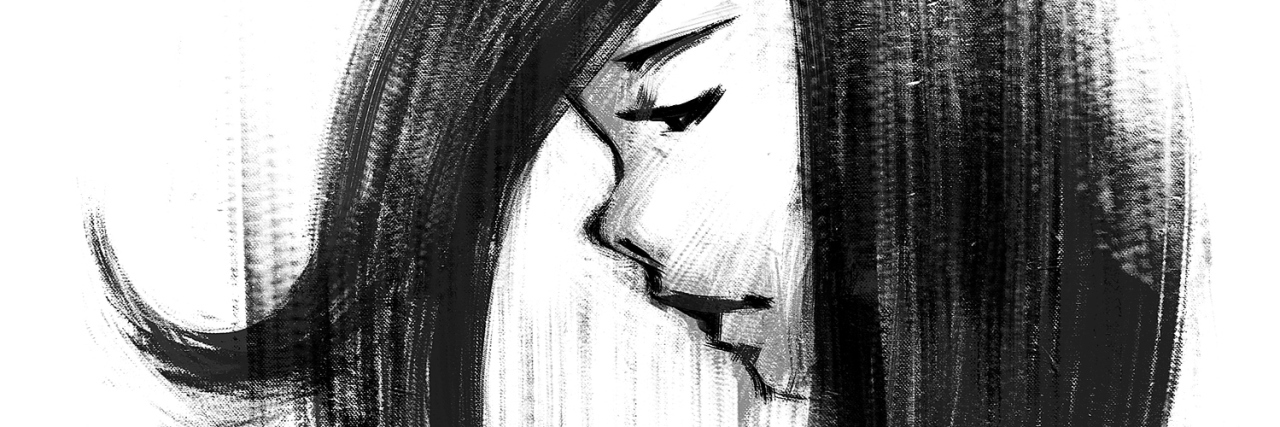Covert Incest: The Type of Childhood Emotional Abuse We Don't Talk About
Editor’s Note: If you’ve experienced emotional or sexual abuse as a child, the following post could be potentially triggering. You can contact the National Sexual Assault Telephone Hotline at 1-800-656-4673.
As a sexual abuse survivor, I have been stunned by the monumental shift in awareness regarding sexual assault and harassment that has erupted in the last couple of months. I’m grateful people are finally talking about how pervasive it is in our culture and holding perpetrators accountable for their actions.
• What is PTSD?
But there is a less obvious yet equally destructive form of abuse that occurs far too often and it is very often ignored or undetected. It’s called “covert incest.” “Covert incest” is defined as a type of emotional abuse in which a parent relies on a child for emotional support. This can involve “parentifying” a child, enmeshment and hyper-sexualized talk with a child which of course a child is not equipped or mature enough to deal with. The danger of covert incest is that it often results in the needs of a parent superseding that of a child at the expense of the child’s normal development of an independent self with his or her own needs and emotions.
Many parents who are covertly incestuous come from traumatic childhoods themselves where boundaries were non-existent and they were often the victims of the same type of treatment. Often this occurs when there is a divorce, death or mental illness where one spouse is unavailable to the other to fulfill their normal adult needs.
This is where the damage can begin. The parent can begin to rely upon the child to fulfill those needs and the child naturally obliges, in part because instinct tells them if the parent’s needs aren’t met, then the child’s own needs will not be met and partly because the child feels “special” and as though they have been “chosen” by the parent to be their confidante and partner. It’s a confusing and very harmful dyad that is absolutely detrimental to the child and usually results in numerous issues well into adulthood.
In my personal case, my parents were divorced by the time I was 3. My father was completely out of the picture and what emerged was a very unhealthy enmeshed relationship between my mother and I. I felt myself being drawn into the responsibilities of partner, best friend and parent. People would often comment on how mature I was for my age, a little adult in a child’s body — an old soul. My own family said I was very serious, disciplined, responsible, perfectionistic and protective of my mom. They thought this was just my personality and that it was more harmful for her than me. They couldn’t have been more wrong.
Aside from feeling afraid to have any needs because I didn’t want to overwhelm my mother who was prone to fits of self-harming behavior and panic attacks, I squelched all of my negative emotions because I was always told, “don’t be mad at me” or “don’t be sad because it makes me sad” and the last thing I wanted to do was to hurt my already fragile “child mom.”
However, the worst aspect of this unhealthy relationship exhibited was that I was exposed to sex talk from a very young age. I knew all about sex by the age of 5 and was aware of every man my mom slept with, how the sex was and details thereof. As I got older, this boundary became even more blurred when it came to privacy. I was often told that she was entitled to look at me naked because I came out of her body, as if that ascribed some kind of ownership of my body to her. She would comment about my maturing body, tell me to wear short skirts to show off my pretty legs, tell me to wear low cut blouses to show off my boobs because “men like that.” I felt like a prostitute being pimped out by my own mother. Objectified and told that my value lied solely in catching a man and having sex.
Even after I was married, my mother always asked about how our sex life was. Did we have “nookie nookie” and seemed to live vicariously through me in an odd perverted way.
I’ve learned in therapy that all of this is not normal. It’s not healthy. It’s destroyed my sense of self and has contributed along with my sexual abuse to my PTSD. What makes this type of abuse even harder to heal from is that it occurs within what should be the most sacred of relationships, that of parent and child. While there is still love there, there is also deep anger, regret disgust and shame. There’s the sense of grief at the loss of the childhood that never was. There is the challenge of establishing healthy boundaries with that parent as an adult so as to reclaim and discover that self that never emerged. And there is the challenge of reconciling the damaging behavior with the perception of the parent from those outside the parent child relationship.
I’ve been working through this along with my sexual abuse for three years now. And believe it or not, this abuse is proving to be the more difficult betrayal to accept and heal. Discussing it and having it validated is just the first step. I’m hoping more adult children of toxic parents come forward with their stories. We aren’t bad for wanting our lives back. We are warriors.
If you or a loved one is affected by sexual abuse or assault and need help, call the National Sexual Assault Telephone Hotline at 1-800-656-4673 to be connected with a trained staff member from a sexual assault service provider in your area.
Getty Images photo via Archv

